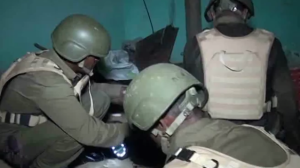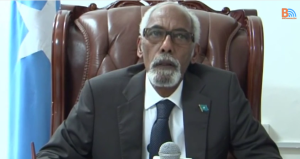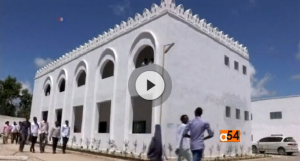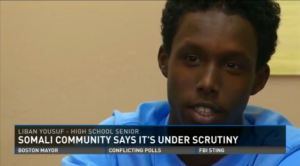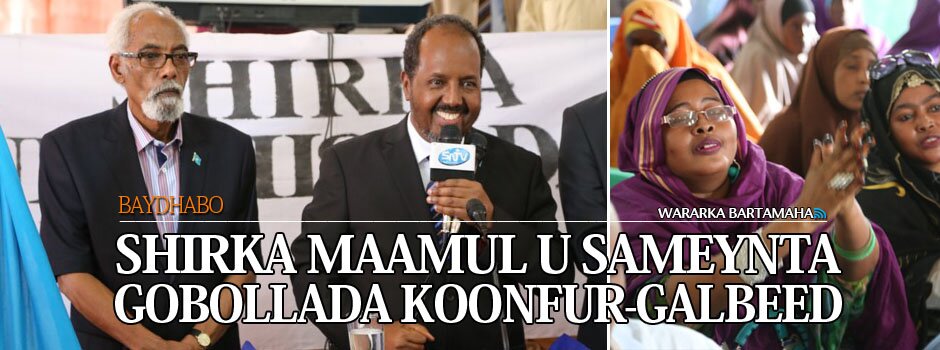What Prof. Said Sh. Samatar said on CNN

Said Sh. Samatar, Professor at Rutgers-Newark University. Author - Somalia: a nation in turmoil, Oral poetry and Somali nationalism: the case of Sayyid Mahammad 'Abdille Hasan. And many more.
Today’s pirates are mainly fighters for Somalia’s many warlord factions, who have fought each other for control of the country since the collapse of the Siad Barre government in 1991.
Prof Said Samatar along with other experts were on a CNN special (Somali Pirates. Can they be stopped) and here is what Prof. Said Samatar said:
Here is the transcript from CNN:
You couldn’t hear me before, though, sir, Mr. Samatar, but I want to ask you about — we’re trying to find solutions here. And I want to go into the actual pirates themselves. Is this — is this a last resort for them? Or is it more so that the ships out there are an easy target, or a combination of both here?
SAID SAMATAR, EDITOR, “HORN OF AFRICA JOURNAL”: Well, I think it’s a combination of both. And if I may say so, I think we need to understand what the background to this. As you recall, when the central Somali government collapsed about 19 years ago, and our coastal waters were defenseless, international interlopers, fishing trawlers descended on our shores and hauled off our sea life and even much more catastrophic than that is that a warlord made a kind of deal with an alleged mafia that dumped nuclear waste on the Somali — what was once a pristine Somali Coast.
LEMON: Are you saying that because of that situation — are saying that these men may be — feel compelled to do that? How did that change the situation in Somalia when that happened?
SAMATAR: No and I’m by no means justifying what these maritime thugs are doing. They are thugs. And I think I have some ideas as to how to deal with them.
LEMON: And what should we do?
SAMATAR: Well, the first thing you need to do is develop human assets on the ground. Intelligence. Once you have complete understanding of who these pirates are, who their clans are, who their elders are, then what you need to go for is to go and arrest their own clan elders. You see, the Somalis do not understand the western principle of individual gift and individual innocence. They understand the collective punishment.
LEMON: Said Samatar, you believe that there is an al-Qaeda connection? And you say a very strong one?
SAMATAR: Yes, I believe so. But before I address that, quickly, if I may do so, I would like to correct what one of the panelists has said, namely, that there is no government in that region. In fact, there is a strong government in front land and they have a police and security system there.
LEMON: OK. So, talk to us about the al-Qaeda connection, though.
SAMATAR: OK. The al-Qaeda connection is, of course, obviously there. Very clearly. And, as the panelists have pointed out, is very much allied with al-Qaeda, their leaders. In fact, many of the leaders of al-Shabab have been trained in Pakistan and Afghanistan.
LEMON: All right. Final thoughts about how to stop these pirates. I want to bring our panel back in. I want to start with you, get your final thoughts, Professor Said Samatar. You seem to have — be much more intimate with the knowledge of the situation than many people who I’ve spoken to and many people on our panel here, frankly. Give us the solution.
SAMATAR: I think a number of the panelists suggested the ultimate solution will come when that unfortunate country is reconstructed and made into a nation that is responsible to guard its maritime boundaries.
Comments
comments
 Calendar
Calendar









